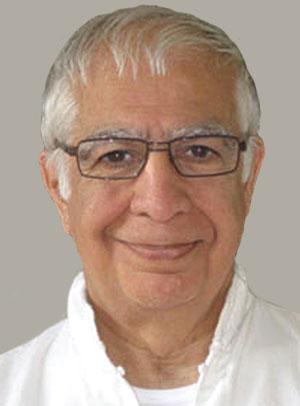
Military regimes in Myanmar imprisoned nearly 10,000 people since the army first seized power in 1962
The limited awareness about 1988 is part of a larger gap that leaves many susceptible to simplistic versions of history
YANGON: Ko Shell had his teeth knocked out during torture sessions and spent 14 years in six jails, but as the 30th anniversary looms of the famed Myanmar pro-democracy uprising that led to his incarceration, he says those sacrifices are being forgotten.
Sitting in a tea shop in downtown Yangon, he worries history is not being taught to the younger generation, a frustration mirroring wider disappointment with the government among many jailed for opposing the junta which ruled for four decades.
“All the true stories were not shared with the public,” the 49-year-old said.
Military regimes in Myanmar imprisoned nearly 10,000 people since the army first seized power in 1962, sending the country into decades of isolation.
Most were jailed in the years after nationwide strikes on August 8, 1988, part of broader anti-junta demonstrations that catapulted Myanmar leader Aung San Suu Kyi into the spotlight.
The daughter of Myanmar’s independence hero, Suu Kyi was swept up in the revolt shortly after returning from a cozy life in England to care for her sick mother.
But despite then spending a combined 15 years under house arrest by the paranoid regime, Suu Kyi has emphasised reconciling with the generals after winning landmark elections in 2015.
While a third of MPs in her party have served time for activism, prominent members of the 1988 protests were passed over when candidates for parliament were chosen to run.
The lack of compensation, monuments or other forms of redress for victims have caused angst, while many can’t get the work they seek due to the stigma of jail.
“Most of them face difficulties,” said Ko Shell, a taxi driver.
History is a dangerous subject in the Buddhist-majority country, where the military promotes a narrative of unifying a country riven by religious and ethnic faultlines.
The toxic issue of belonging is highlighted by the Rohingya crisis, where the Muslim minority is referred to as “Bengali” to cast them as immigrants from Bangladesh.
With many former junta members enjoying normal lives or still involved in government, dredging up memories of political prisoners is not common.
But Kyaw Soe Win from the Yangon-based Assistance Association for Political Prisoners hopes to change that.
The museum he helped create is one of the only places in Myanmar where visitors can learn what inmates endured.
“School texts, they never show the real history,” he said, standing in front of a recreation of a prison cell.
There are photos of students marching, soldiers cracking down, and a reconstruction of Myanmar’s most infamous prison, Insein.
Displays show trinkets, crafts and musical instruments made in jail.
The limited awareness about 1988 is part of a larger gap that leaves many susceptible to simplistic versions of history.
“A big problem in Myanmar today is the lack of a critical discussion on the country’s recent past,” said writer Thant Myint-U.
Frustration with Myanmar’s government under Suu Kyi has risen since she took office more than two years ago.
The country has faced global ire for its bloody handling of the Rohingya crisis — which the United Nations and Washington have described as ethnic cleansing — while conflicts burn in remote borderlands and the military still controls 25 percent of parliament.
Suu Kyi has also been singled out for lacklustre economic reforms and top-down management.
The next national elections are due in 2020 and a group of veteran 1988 leaders have announced plans to launch an alternative to Suu Kyi’s National League for Democracy (NLD).
Ko Ko Gyi, one of the 88 protesters involved in the new party, which is still settling on a name, said that the essence of the “four 8” revolution is democracy, and “democracy means pluralism.”
“We will try to make a better alternative for our voters,” he said.
Min Thu, a 57-year-old NLD lawmaker who spent 10 years in jail, acknowledged the slow pace of reform but compared it favorably to the past.
“They (people) can reveal their opinion freely and they can criticize,” he told AFP at an annual congress in Yangon.
He said the party was providing some assistance to former prisoners.
Without naming the military, he blamed the imperfect progress on decades of mismanagement, but said voters can now pick new governments at elections if unsatisfied.
But most former political prisoners are concerned about today, not the next vote.
Ko Shell says he has family problems because his stretches behind bars make home life difficult.
“I want to be free all the time,” he said.












